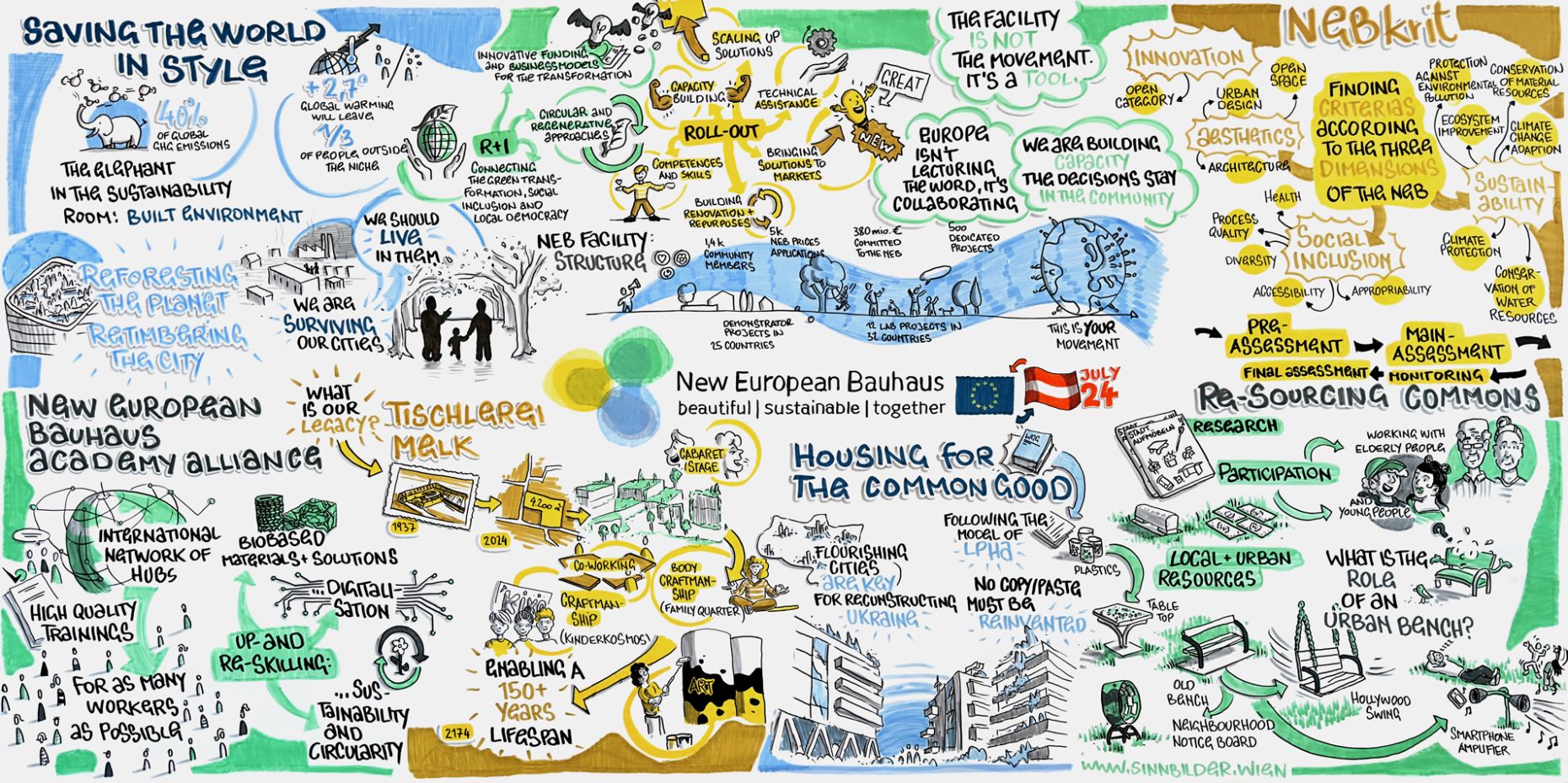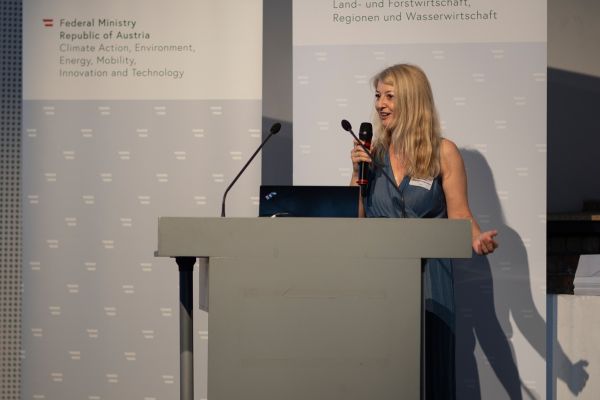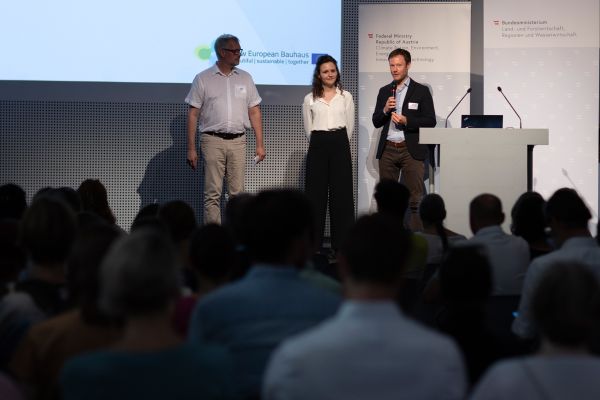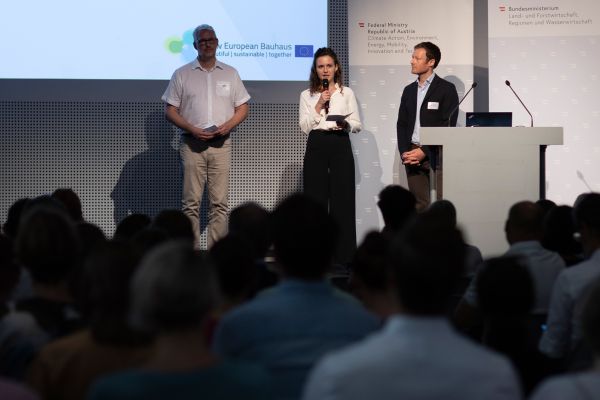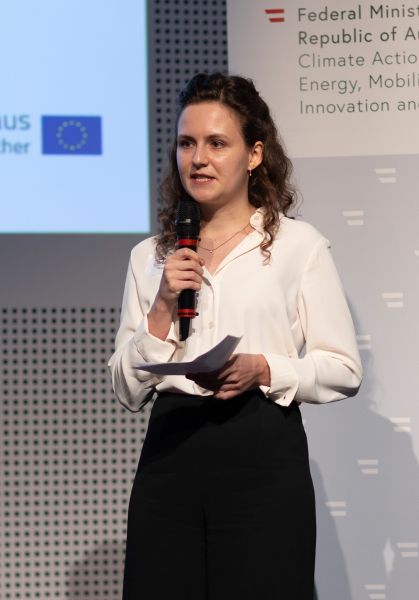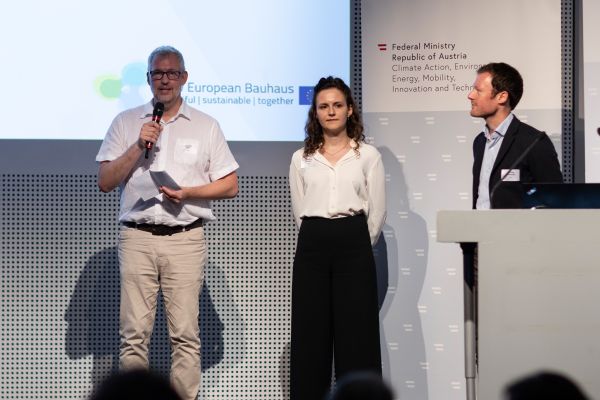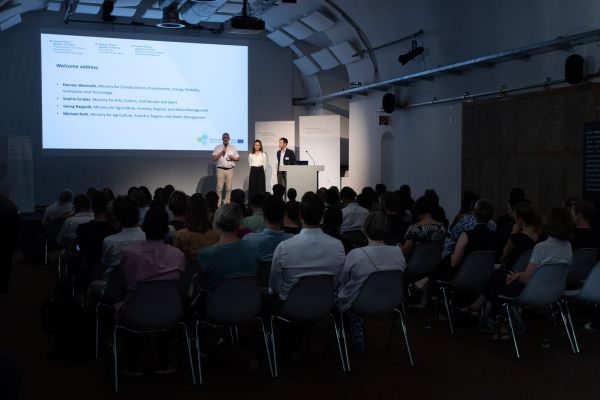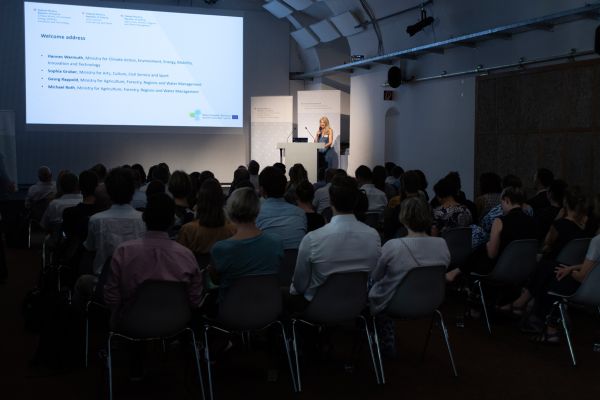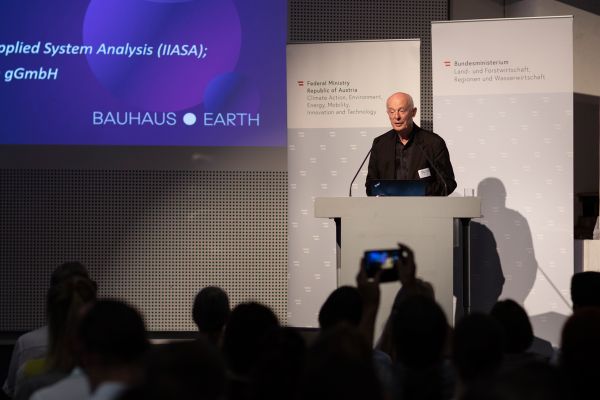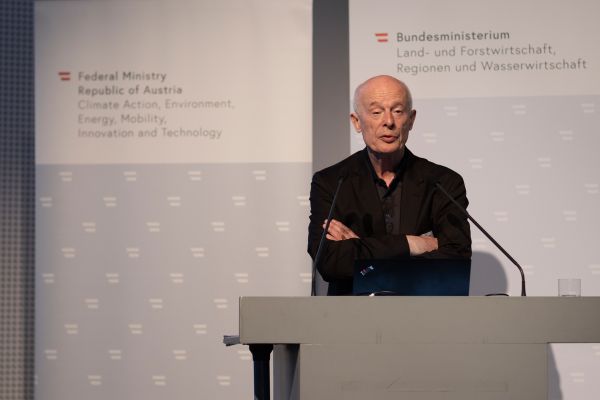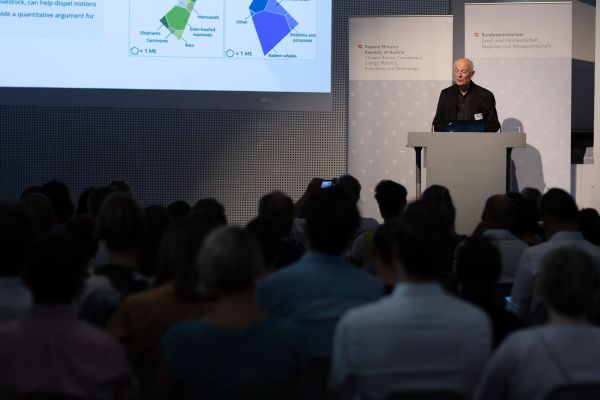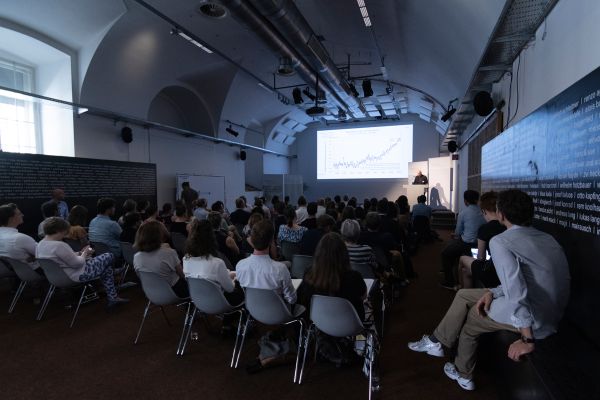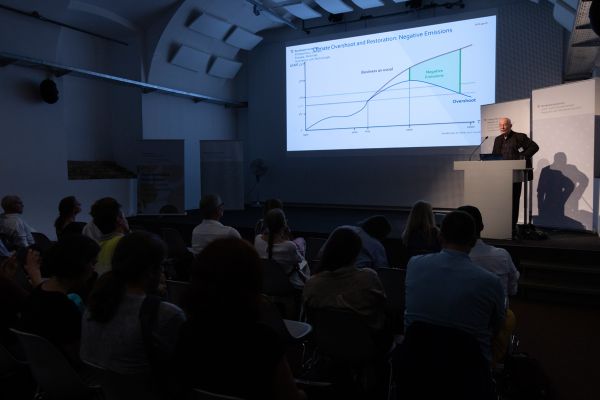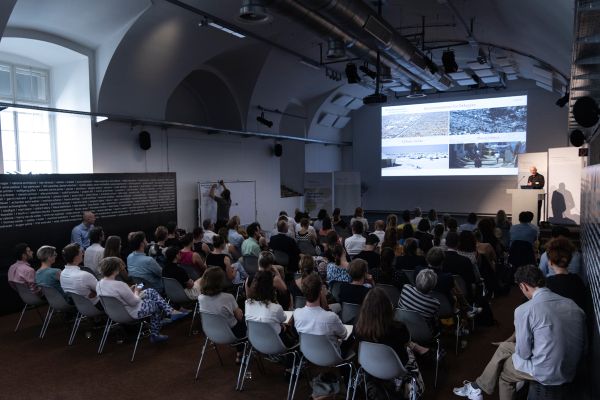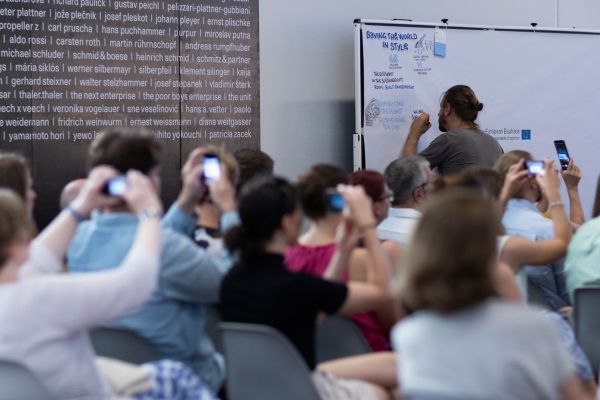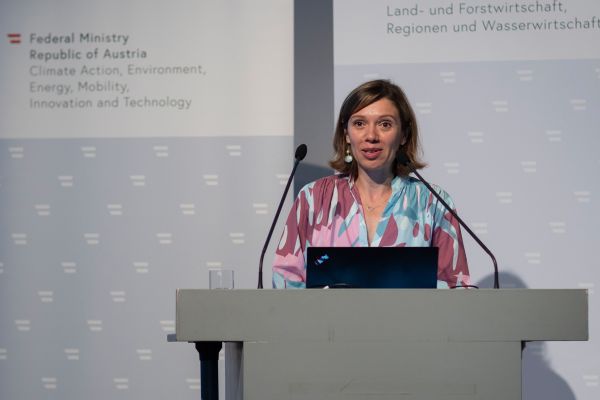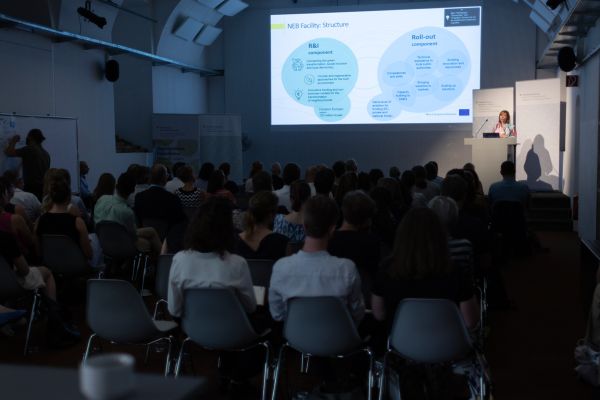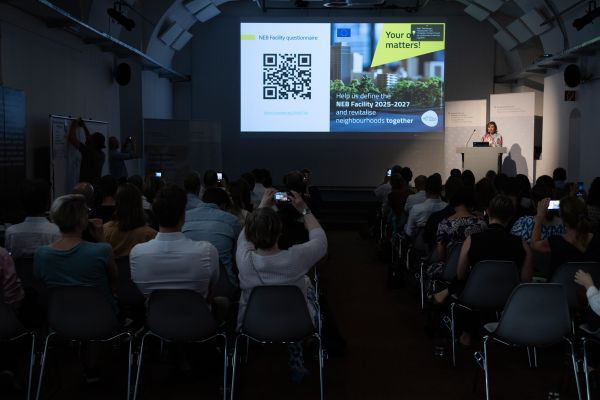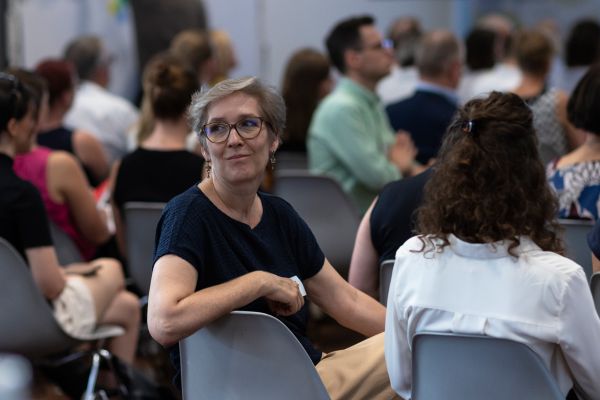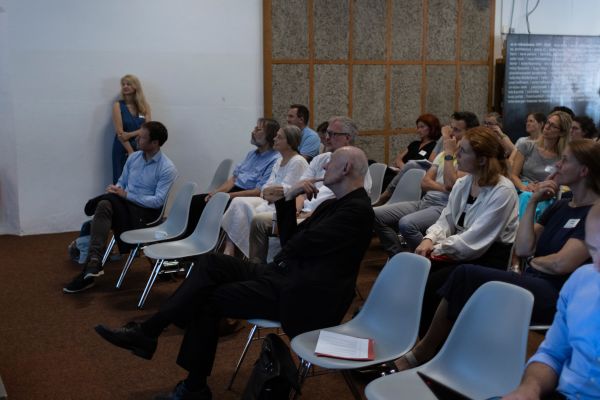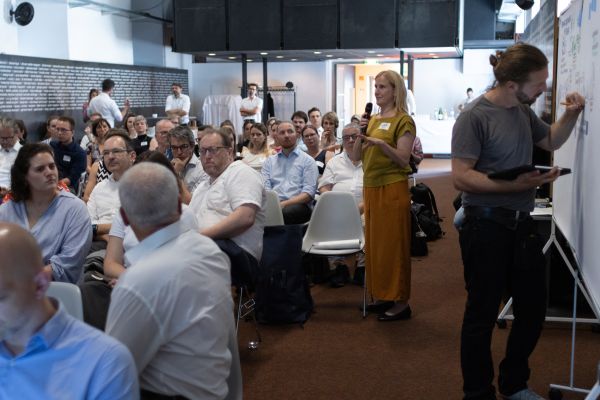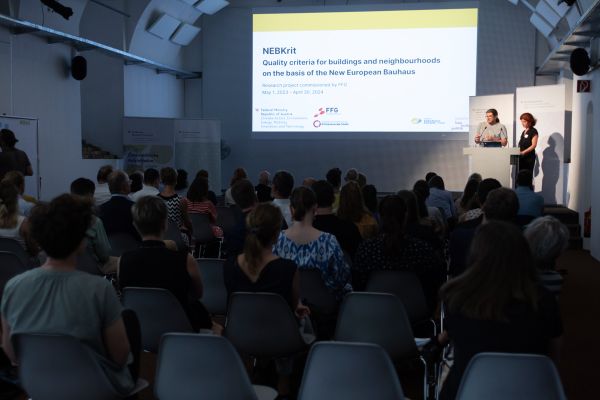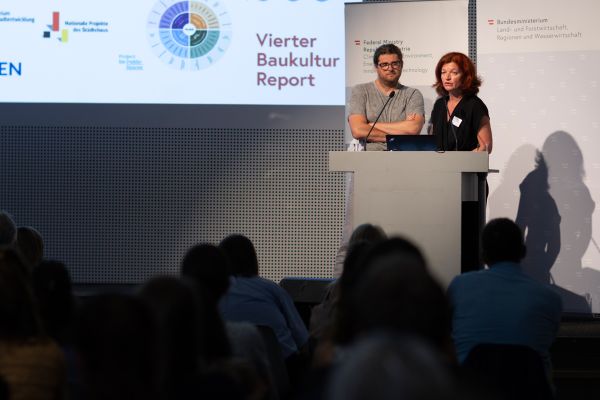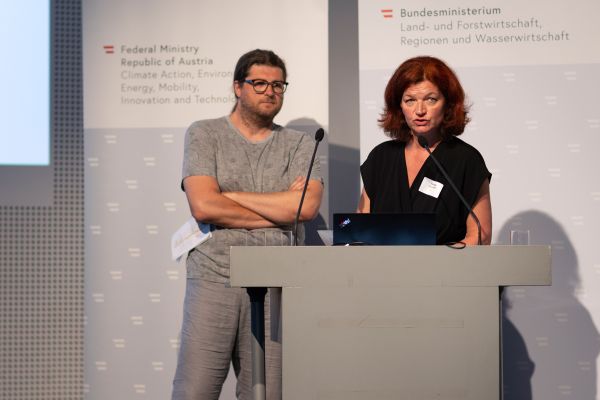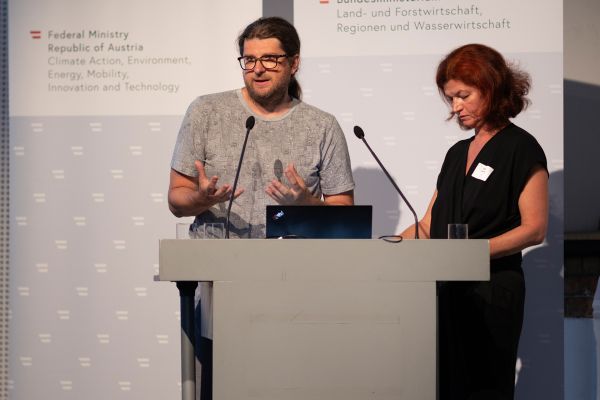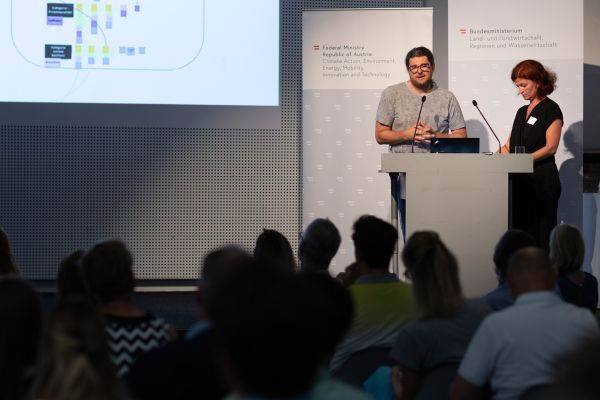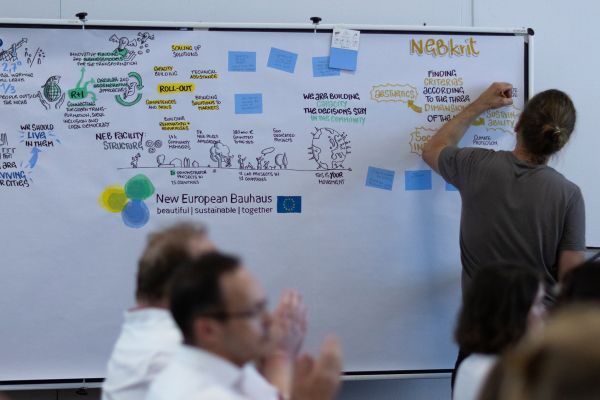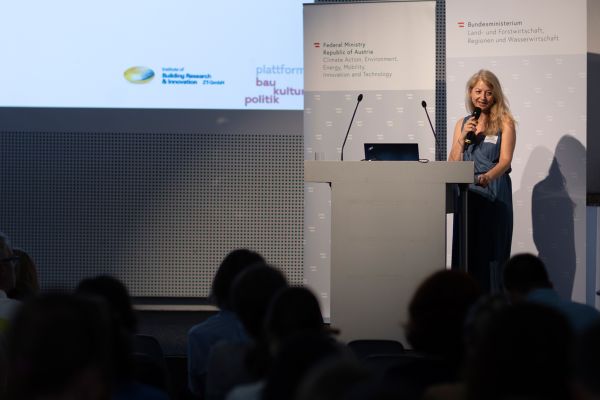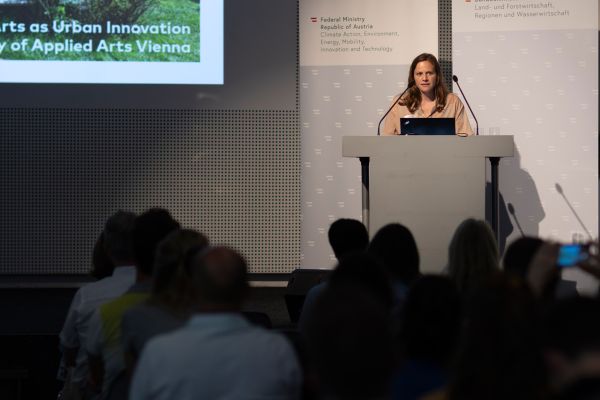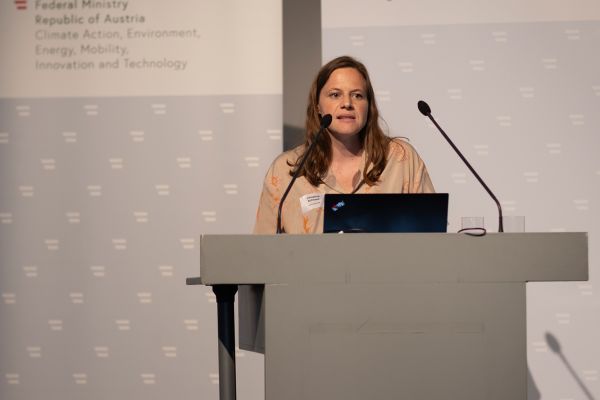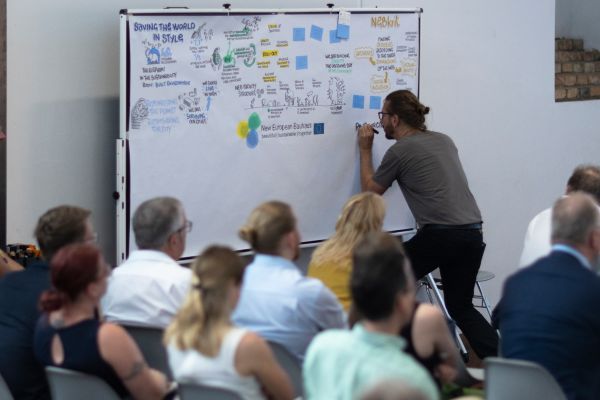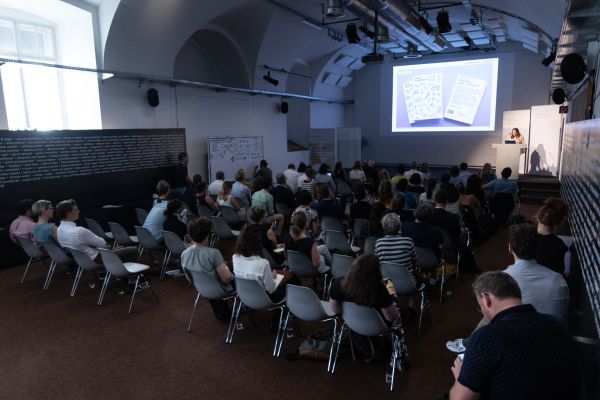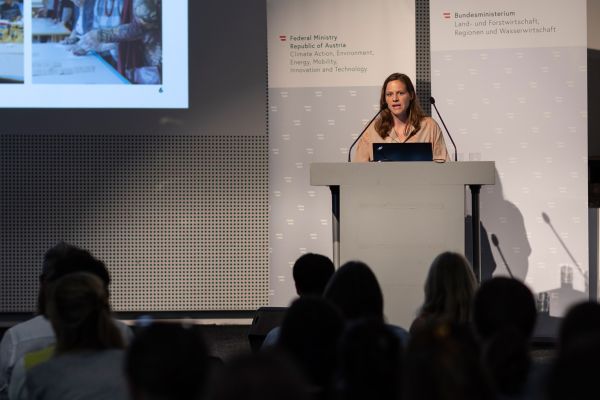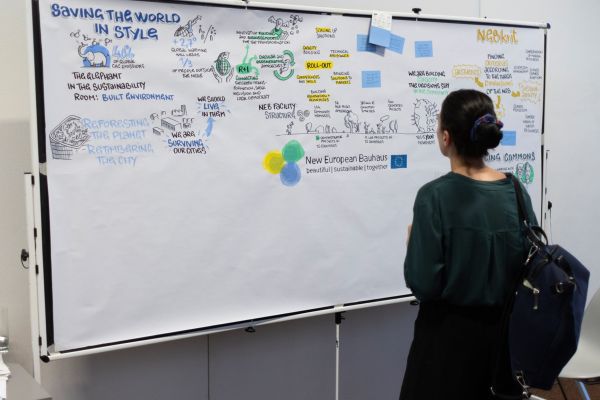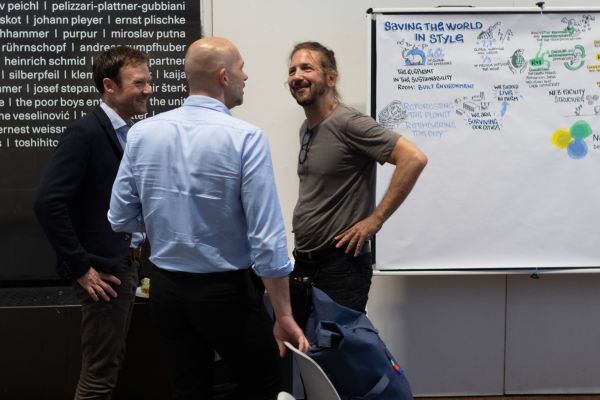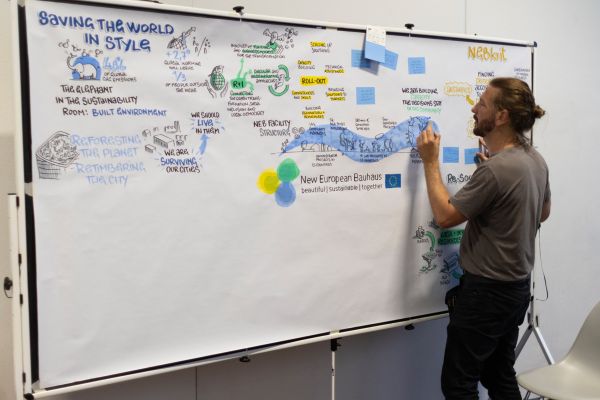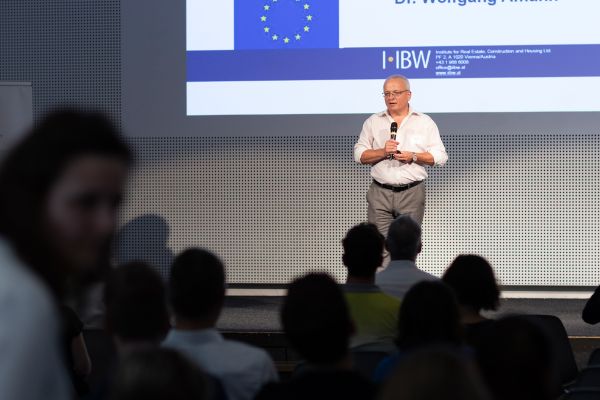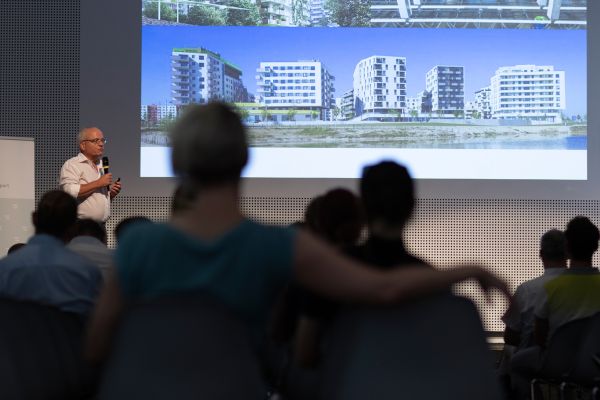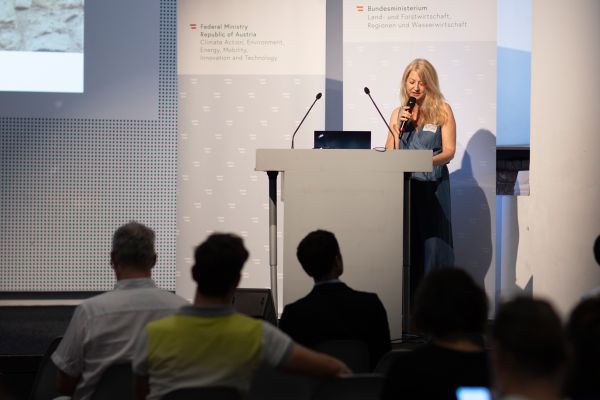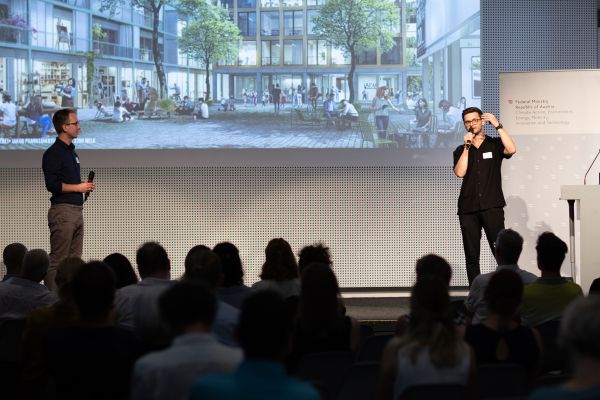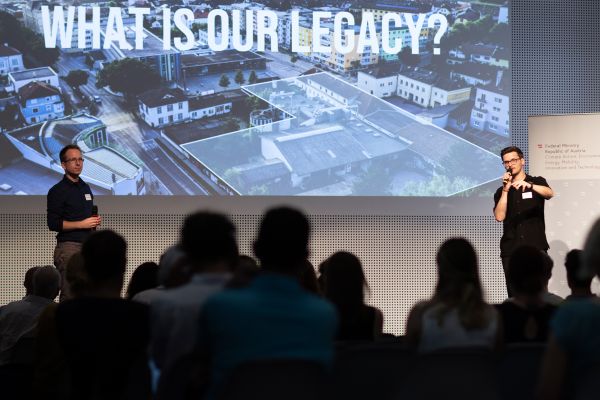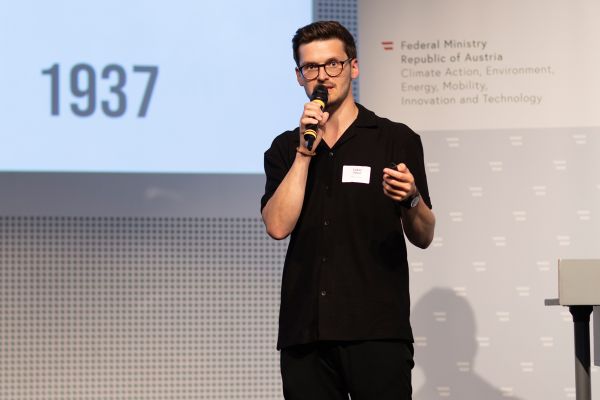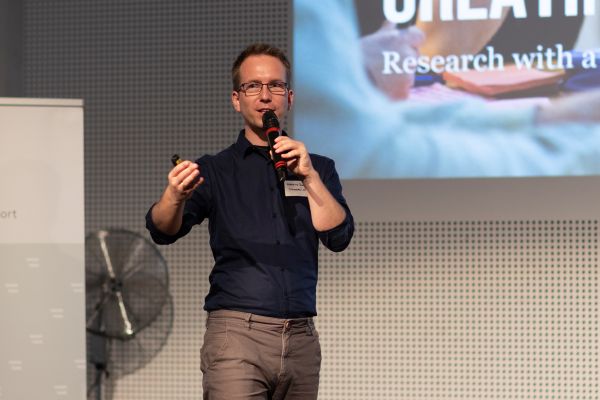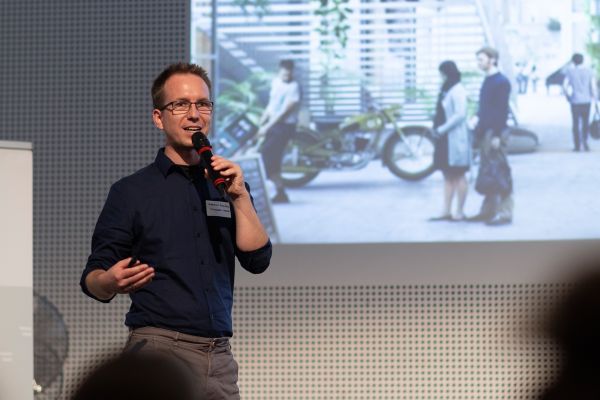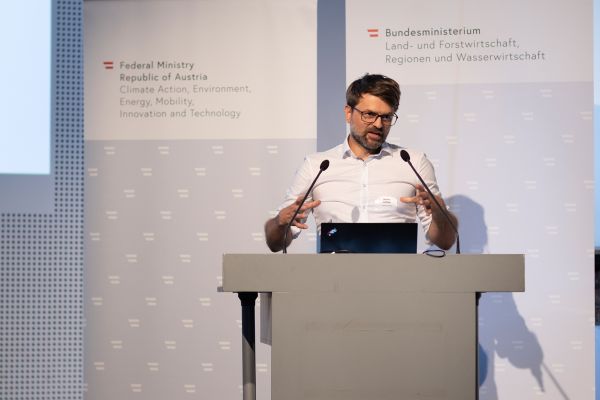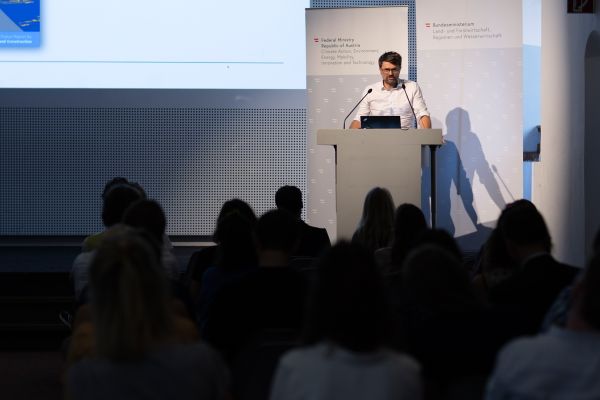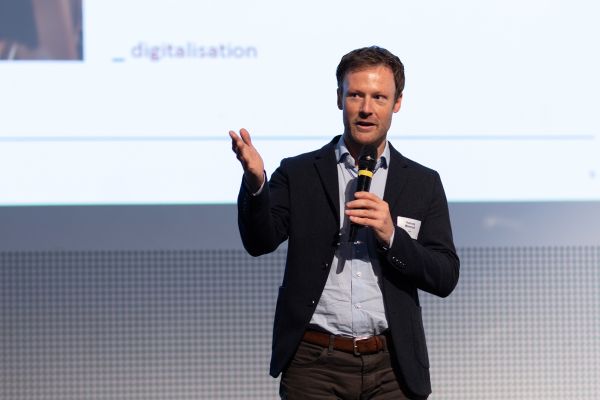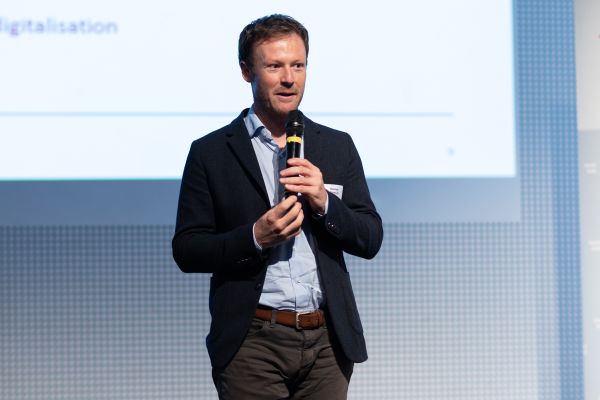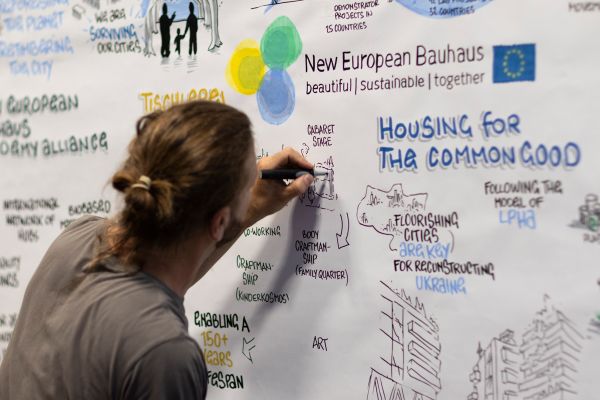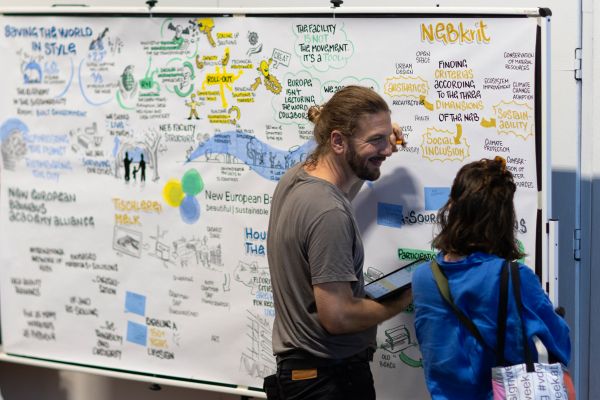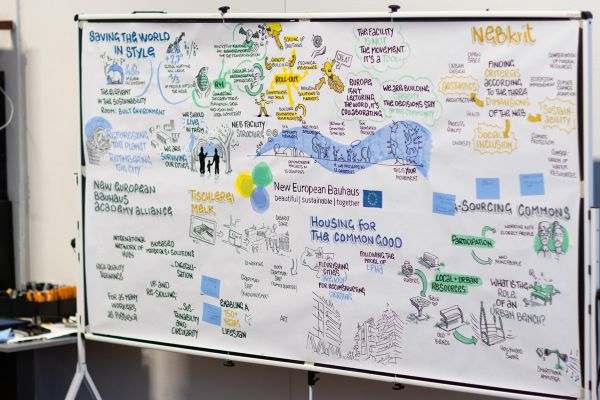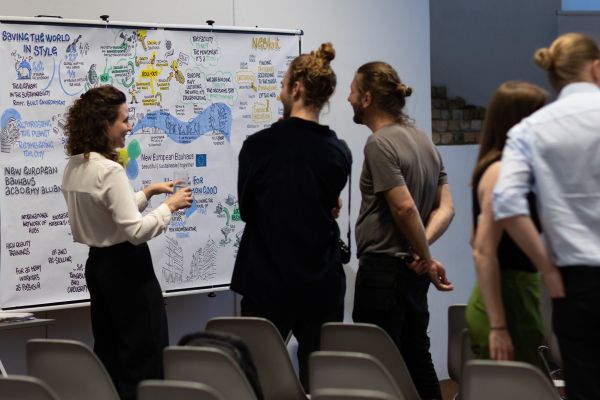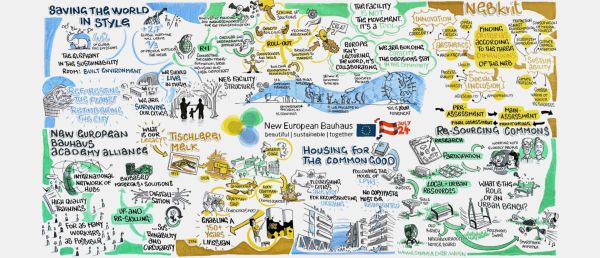New European Bauhaus: Jour Fixe Austria
Organizer
- Ministry for Climate Action, Environment, Energy, Mobility, Innovation and Technology
- Ministry for Arts, Culture, Civil Service and Sport
- Ministry for Agriculture, Forestry, Regions and Water Management
Documentation
Summary of the presentations
Introduction about the values of the New European Bauhaus: John Schellnhuber (IIASA)
John Schellnhuber (IIASA): In his keynote, Prof. Schellnhuber pointed out that the "elephant in the sustainability room" is our built environment being responsible for around 40 % of global GHG emissions and 55 % of developed countries waste. In this regard, he advocates reforesting the planet, using buildings as a global carbon sink. The New European Bauhaus could be one major step to implement the European Green Deal, based on its three pillars sustainability, aesthetics and social inclusion.
Presentation of the New European Bauhaus Facility: Alina Ujupan (European Commission, Bauhaus Unit)
Alina Ujupan, head of the New European Bauhaus Unit, presented a number of success stories of the NEB since its foundation, as well as the proposed structure of the NEB Facility. The NEB Facility will be anchored in the Horizon Europe Strategic Plan 2025-2027 and will have two components: The Research & Innovation component will research and develop innovative out-of-the-box solutions to bring people and green transformation together, with an indicative budget of EUR 120 million per year until 2027. The roll-out component will cover deployment and technical assistance with support from various EU programmes around topics and priorities to be identified. The NEB Facility is set to bring stability for investment and creativity, helping the NEB movement unfold its full potential.
The European Commission is conducting a consultation process involving Member States, the NEB Community and stakeholders. Please take part in the survey.
NEBKrit – Quality criteria for buildings and neighborhoods based on the NEB: Robert Temel (Plattform Baukulturpolitik) und Renate Hammer (IBRI)
In the project NEBKrit, funded by the Federal Ministry for Climate Action, a criteria and assessment model was developed based on the NEB principles. The three dimensions of ecological sustainability, aesthetics and social inclusion (14 categories with 37 criteria) as well as an additional dimension of innovation are included. The assessment provides for a self-description of the projects. The evaluation assessment takes place in two steps: a preliminary assessment by external experts and a main assessment by an interdisciplinary board. In summary, it can be stated that a holistic assessment and a qualitative approach to aesthetic and social criteria are necessary. The proposed model can be used not only for external assessment but also as a guide for self-assessment of projects.
Re-Sourcing Commons – Fritzi-Massary-Park (NEB Prize Winner 2024): Christina Schraml (die Angewandte, Wien)
The project "Re-sourcing Commons" is one of the 20 laureates of the New European Bauhaus Prizes 2024 in the category "Shaping a circular industrial ecosystem and supporting life-cycle thinking". Re-sourcing commons by Social Design Vienna promotes sustainability by using reclaimed materials ensuring community collaboration in a public park and challenges non-sustainable standards in urban design routines. It uncovers hidden potentials of material circularity considering social dimensions using the example of the participatory redesign of a Viennese public park. The project demonstrates internationally transferable approaches to narrow the circularity gap through integrating previously overlooked (im)material resources of the city into a modular, repairable and (socially) sustainable system.
Housing for the Common Good: Sustainable Governance from European Best Practice for the Recovery in Ukraine: Wolfgang Amann (IIBW)
In the study "Housing for the Common Good", commissioned by the Federal Ministry for Climate Action, the housing model of Limited-Profit-Housing Associations (LPHA) is found convincing in terms of quantity, quality, financing and sustainability. Over the past couple of decades, LPHAs have realised around 1 million housing units, representing 25 % of the total housing stock in Austria. Previous experience of trying to 'export' the LPHA business case to other countries has shown that 'copy-paste' does not work. The legal and institutional complexity is too great. Therefore, a legalistic approach was chosen. The voluminous Austrian LPH Act was condensed to just 18 paragraphs on a few pages. Thus, it might be possible to reinvent such legislation in another country, if it is appreciated by the decision-makers and stakeholders. A model law approach is common in the EU.
NEB Demonstrator Tischlerei Melk: Lukas Fürst (Tischlerei Fürst) und Klemens Schlögl (AKXSO)
A climate-neutral, multifunctional, scalable NEB city quarter is to be built on the former production site of the Fürst carpentry in the immediate vicinity of the world-famous Melk Abbey. In this sense, Lukas Fürst presented the ready-to-implement vision of the NEB district "Tischlerei Melk" – from an architectural, urban development and technical concept point of view. Key to a successful implementation is a high degree of support and acceptance among the population and relevant stakeholders, ensured by participation and co-creation in the process. Aim of the project include detailed planning, construction schedule and financing plan. Deepening existing networking with the NEB community.
Start of the NEB Academy Alliance: Stefan Leitner (Holzbau Austria)
In the last presentation of the Jour Fixe, Stefan Leitner introduced the NEB Academy Alliance (NEBA Alliance) which should give a decisive push for new skills and education across all levels of the construction sector. Over the next two years, the NEBA Alliance will develop an international alliance of educational actors and training providers, which will connect five local and regional hubs across Europe. These hubs will offer tailored and high-quality co-created training services, curricula, and programmes on sustainable construction solutions via a digital platform. To ensure consolidation, growth and greater coverage both across and beyond Europe, the Alliance will call for new regional NEBA and satellite hubs to join in and contribute with training content. The NEBA Alliance, led by the Slovenian University of Primorska, is composed of 14 partners including Holzbau Austria.
Program
- 10:00 Registration
- 10:30 Welcome address
- Federal Ministry for Climate Action
- Federal Ministry for Arts, Culture and Civil Service and Sport
- Federal Ministry for Agriculture, Forestry, Regions and Water Management
- 10:40 Introduction about the values of the New European Bauhaus
Hans-Joachim Schellnhuber, IIASA
Presentation slides
NEB Facility and Consultation Process
- 11:00 Presentation of the New European Bauhaus Facility
Alina Ujupan, Head of Unit New European Bauhaus Coordination, European Commission
Presentation slides - 11:30 Feedback on the NEB Facility and consultation process
Q&A
NEB activities in Austria
- 11:50 NEBKrit – Quality criteria for buildings and neighborhoods based on the NEB
Robert Temel, Plattform Baukulturpolitik & Renate Hammer, IBRI
Presentation slides - 12:10 Re-Sourcing Commons – Fritzi-Massary-Park (NEB Prize Winner 2024)
Christina Schraml, die Angewandte
Presentation slides - 12:30 Lunch Break
- 13:30 Housing for the Common Good: Sustainable Governance from European Best Practice for the Recovery in Ukraine
Wolfgang Amann, IIBW
Presentation slides - 13:50 NEB Demonstrator Tischlerei Melk
Lukas Fürst (Fürst Möbel GmbH), Klemens Schlögl (AKXSO) - 14:10 Start of the NEB Academy Alliance
Stefan Leitner, Holzbau Austria
Presentation slides - 14:30 Get together
Contact Address
Österreichische Gesellschaft für Umwelt und Technik (ÖGUT)
Hollandstraße 10/46
A-1020 Wien
Enno Püttmann
Tel.: +43 (1) 315 63 93 – 18
E-Mail: enno.puettmann@oegut.at

